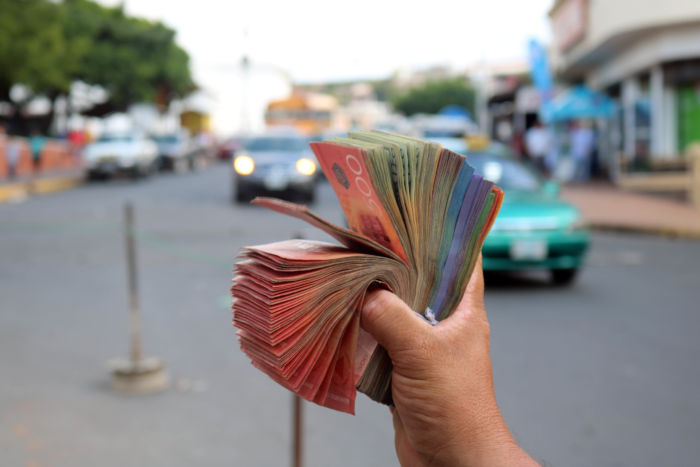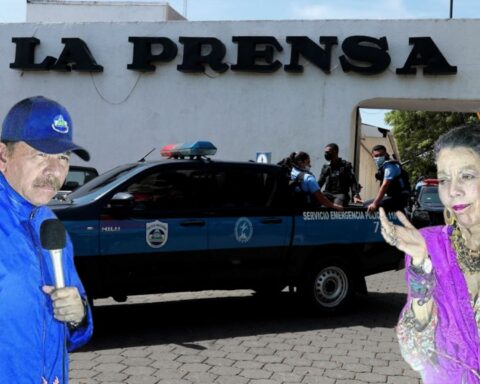The Central Bank of Nicaragua (BCN) in its latest Monthly Index of Economic Activity (IMAE), corresponding to January 2023, reflected positive numbers in the country’s economic growth. This while the basic food basket is on its way to costing 20,000 córdobas, which is not consistent with the purchasing power of the majority of Nicaraguan families.
“The results indicate that the economy continued to show a positive performance, registering in the original series of the IMAE, a growth of 3.2 percent in relation to January 2022, and 3.5 percent in the average annual variation,” the document refers to. of the entity subordinated by the regime of Daniel Ortega and Rosario Murillo.
Related news: Price of the basic basket in Nicaragua drops only five córdobas
In this regard, the BCN assures that the activities that showed the greatest growth were hotels and restaurants, 27.9 percent; exploitation of mines and quarries, 18.2 percent; transportation and communications, 10.2 percent; trade, 6.3 percent; other services, 5.4 percent; and financial intermediation and related services, 4.2 percent.
Regarding the record of decrease in activities, the entity affirms that the affected sectors were fishing and aquaculture, -8.3 percent; construction, -7.0 percent; and energy and water, -0.7 percent.
The report highlights that, “in primary activities, the growth in the activity of mining and quarrying was mainly due to the greater extraction in metal mining,” a business that belongs to the dictatorship through the reforms to the Special Law on Exploration and Exploitation of Mines through the modification of articles 2 and 76 bis, and additions to article 39, article 77 and article 84 bis of Law 387.
Situation that triggered criticism of the presidential couple. At the time, the director of Fundación del Río, Amaru Ruiz, pointed out that the dictatorship, with these modifications and additions to the Law, sought to “endorse” artisanal mining and “monopolize” the extraction of precious metals.
The BCN continues explaining that the increase in the livestock sector was “due to the increase in poultry and pig slaughter, as well as the production of eggs and milk; in forestry and timber extraction it was the result of the greater extraction of logs and firewood; In agriculture, it originated from more work and production of basic grains and coffee, particularly. On the other hand, the decrease in fishing and aquaculture was mainly caused by the lower production of farmed shrimp and capture of marine shrimp, among other fishery products, “says the letter.
«In the manufacturing industry, there was growth in the production of dairy products, tobacco, textiles and harnesses, among others. Finally, in the services group, growth was observed in hotels and restaurants, transportation and communications, commerce, financial intermediation, and related services, among others,” concludes the economic entity.
In February 2023, the family basket reached 19,018.82 córdobas, an amount slightly less than the 19,023.13 córdobas reported in January, which reflects a decrease of just four córdobas and 31 cents.
The food basket has maintained a growing trend, while the purchasing power of Nicaraguans each day remains static or decreases. Currently, salaries that range between 4,723.95 córdobas and a maximum of 10,571.78 córdobas are not enough to even purchase the food component that includes 23 products, the cost of which is 13,545.93 córdobas.








